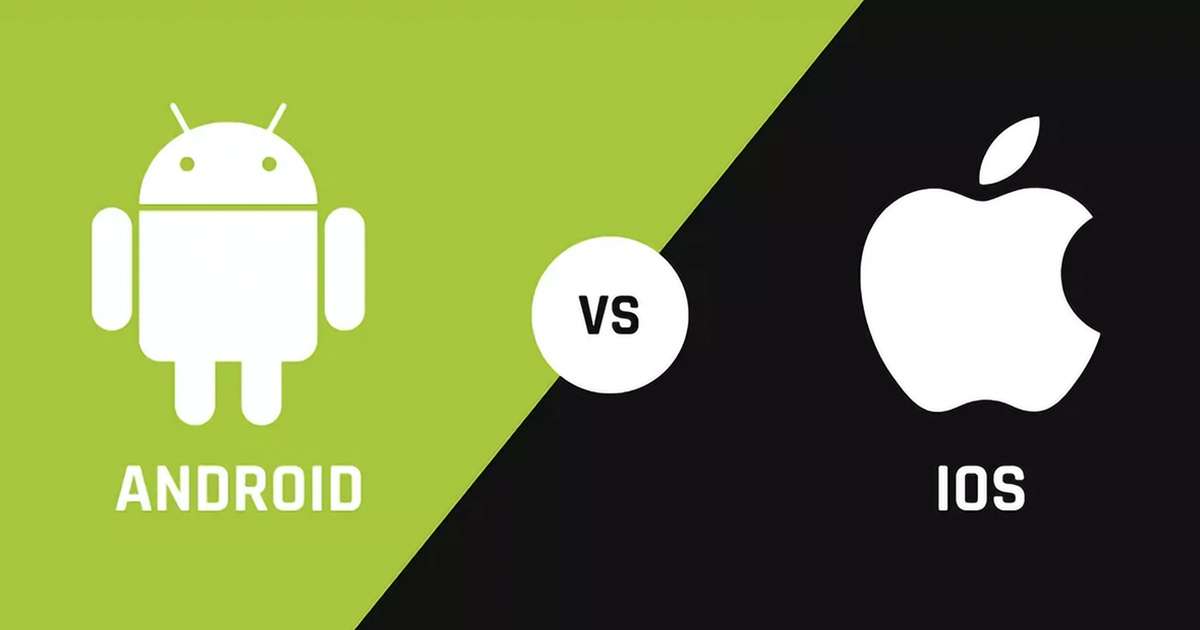Mobile App Development – Which is Easier to Develop iOS or Android?

In the digital age, mobile app development has become a highly sought-after skill. With over 6 billion smartphone users worldwide, the demand for innovative and user-friendly apps is growing day by day. Developers build applications that serve various purposes, from online banking and shopping to fitness tracking and entertainment.
The mobile app market is expected to grow significantly in the coming years. As per a report by Grand View Research, the global mobile application market size is projected to reach USD 567.19 billion by 2023, expanding at a CAGR of 13.8% by 2030. This outlook presents a promising future for aspiring mobile app developers.
Successful app developers like Mark Zuckerberg (Facebook), Jan Koum (WhatsApp), and Kevin Systrom (Instagram) have not only created products that revolutionized the way we live but also achieved immense prestige and success in their careers.
Two operating systems are the best for smartphones: iOS from Apple and Android from Google. Before starting to make mobile apps, it’s important to know how these two platforms are alike and different, as well as the pros and cons of each.
iOS Development
iOS is Apple’s mobile operating system used in popular devices like the iPhone, iPad, and iPod Touch. Developing for iOS means you’re building apps for a limited range of Apple devices with similar specifications.
Pros of iOS Development
Improved Security: iOS provides robust security features that protect against data theft, malware, and other threats. This high level of security makes it an attractive platform for developers, especially for apps that handle sensitive user data.
Rich User Experience: iOS is known for offering a seamless and user-friendly experience, which tends to result in higher user satisfaction and engagement.
Less Device Fragmentation: Unlike Android, which runs on a wide variety of devices with different specs, iOS runs primarily on a limited range of Apple devices. This significantly simplifies the coding and testing process.
Access to Leading Markets: With iOS, developers have access to profitable markets, as iOS users are spread across developed regions like the U.S. and Western Europe.
Loyal Customers: iOS users are typically loyal to the brand, which could mean higher retention rates and more consistent revenue for iOS apps.
Good Salary Potential: iOS developers often enjoy competitive salaries, particularly those with experience and a strong portfolio.
Latest Technology Access: Being an iOS developer provides access to the latest technology released by Apple.
Cons of iOS Development
Higher Development Costs: Building native iOS apps can be more expensive compared to developing cross-platform or web applications.
Developer Fee: The cost to join the Apple Developer Program (required to publish apps on the App Store) is higher compared to Google Play.
Strict Publishing Norms: The App Store has stringent app review guidelines. While this can lead to higher-quality apps, it can also make the approval process longer and more complex.
Limited Customization: iOS doesn’t support widgets and offers fewer customization options compared to Android.
Requires Mac: iOS app development requires the Xcode IDE, which can only be accessed using a MacBook.
Android Development
Google owns the open-source operating system Android. Due to its widespread use by manufacturers, developing for Android necessitates taking a variety of devices, models, and operating systems into account.
Pros of Android Development
Larger Global Market Share: With over 70% of the global mobile operating system market share, Android provides a wider audience for developers. This larger user base can translate into a higher potential for app downloads and usage.
Open System Infrastructure: Android’s open-source nature offers more freedom for customization. Developers can tailor their apps to their liking and even modify the operating system itself.
Developer-Friendly Tools: The Android Software Development Kit (SDK) provides a comprehensive set of tools and APIs that allow developers to create rich and interactive applications.
Lower Developer Fee: Google Play charges a one-time registration fee of $25, which is lower than the Apple Developer Program’s annual fee.
Variety of Distribution Channels: Besides the Google Play Store, Android apps can be distributed through third-party app stores, direct downloads, or even email.
Compatibility with Multiple Devices: Android apps can run on a variety of devices, not just phones. This includes tablets, TVs, wearable devices, and even cars.
Cons of Android Development
Fragmented Devices and OS Versions: Android’s wide range of devices and OS versions makes coding and testing more complex. Developers need to ensure their apps work smoothly across different screen sizes, resolutions, hardware specifications, and operating systems.
Longer Review Process: While not as strict as Apple, the Google Play Store does review all apps for compliance with its content policy, which can delay the app’s availability.
Lower Average Revenue: Android users are generally less willing to pay for apps, which may lead to lower revenue compared to iOS.
More Prone to Malware: Due to its open-source nature, Android is more susceptible to malware and security breaches.
Wrapping Up the Android vs iOS Development Debate
The debate between Android and iOS development revolves around factors such as target audience, development complexity, cost, and revenue potential. iOS uses Swift, a language requiring less code, while Android relies on Java or Kotlin. Apple’s developer account costs $99/year, while Google’s is a one-time $25 fee, making Android more budget-friendly. iOS has fewer device variations, simplifying development, but Android’s larger market share provides a broader audience. iOS users are more willing to pay for apps, potentially resulting in higher revenue, while Android’s open-source nature allows for more customization and innovation. The choice between the two platforms should consider individual skills, resources, and target audience needs.

